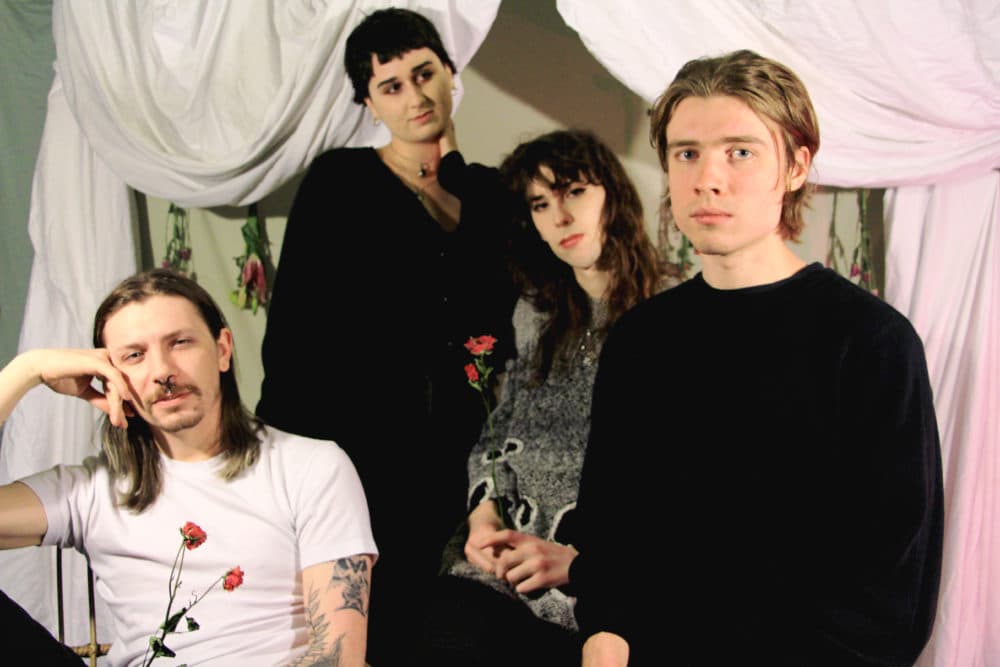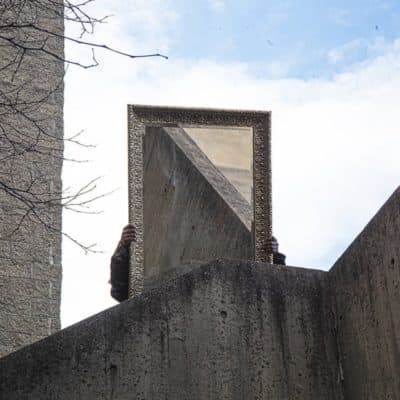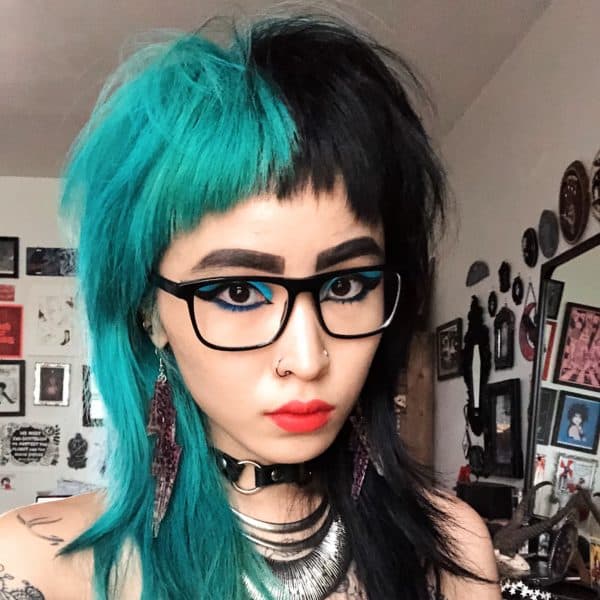Advertisement
Experimental Metal Band SEED Is Creating Space For Trans And Queer People

Metal band SEED makes heavy music for transgender and queer people, fueled by the band’s perspectives as transgender and queer people. Dynamic and experimental, their emotionally heavy songwriting borrows influences from a wide range of places, from nature to performance art.
The band started as a duo in 2018 consisting of vocalist Lux Lucidi and guitarist Tony Tibbetts, later expanding to incorporate Chelsea Ellsworth on drums and Jack Whelan on bass. As the group grew, their music shifted to encompass a wider range of emotional states. Ethereal and reflective, but intense and heavy with rage, SEED’s debut album “Dun Pageant” (out now) is fused with their personal experiences.
SEED’s sound is not clear cut, with influences ranging from classical to doom metal. “I don’t like labels,” Whelan says. “Not only does it limit the crowds that you get to interact with and stuff, you can also build bridges between a lot of places.”
Embracing the unknown is part of the band’s ethos. “We experiment in every opportunity we have through the music-making process,” says Ellsworth. “We experiment with our bodies and our limits in shows. We experiment with what it means to be recording music, how we record music, we experiment with the setup we have at live shows, when we make music in our home.”
This boldness and urge to push boundaries is reflected in their songwriting. “We lean more towards conceptual art themes than traditional musical influences,” Ellsworth says. Feelings of abandonment, depression, hopelessness, mourning, pride, rage and uncertainty are all covered in “Dun Pageant.” Totaling about an hour, songs range from two minutes to the eight-minute “I Need Water.” The album transports you — some songs, like “Seaweed,” evoke drifting, tranquil waters that grow increasingly stormy. Lucidi’s vocals are ethereal but anguished. Others, like “Hole,” invoke fury with guttural vocals and piercing lyrics: “Downright deal/ I'll get my pay/ Next time a man tells me to smile/ That’s not my smile.”
Making and playing music were vehicles for the band to express their experiences as transgender and queer people. “If we're going to talk about this in terms of transness and queerness I also have to interlace all of the other themes of rape culture, domestic abuse, misogyny, sexism, transphobia, homophobia, all of these things, because they are all connected in my experiences,” Lucidi says.
Those themes are woven throughout “Dun Pageant.” In “Poison,” a song that confronts past trauma, Lucidi says his “performance at the end of that song is a reenactment of a very traumatic experience.” Lucidi sings “Outward I go/ Desounding/ Divided...After one dose she penetrates with poison” which then gives way to an unrestrained ending composed of laughter, cries and screams. “That's been another way that SEED also has kind of taught me things about confronting my traumas, is like really getting down to what exactly it is I'm dealing with,” Lucidi says.
For Ellsworth, the band has provided an outlet and platform. “...For me, being able to play the drums in SEED gives me an opportunity to show people that trans women have rage and they have a lot more rage than you might expect and they can express it [in] incredibly acute and aggressive ways [and] are effective and powerful,” she says. “A lot of what we do in SEED is to show the world that trans people have rage and they mourn and they make art about it.”
The songwriting process was collaborative, evolving from living room hangouts and jam sessions. Some tracks, like “Broken Finger,” were written in the spur of the moment, during an attempt to record “Seaweed.” Ellsworth broke her finger hitting the snare drum just days after breaking it in a different spot at a show. Tibbetts tried to soothe the atmosphere by playing guitar, improvising volume swelling chords. Then Lucidi did two single live takes for the vocals.

When it came to producing the album, the band leaned into its experimental nature, employing a wide range of techniques. “There's definitely a lot of dynamics happening that I think are kind of sewing together all of these different styles into a new invention,” Lucidi says. With the help of audio engineer Otto Klammer, the album was recorded in the Pozen Center at the Massachusetts College of Art and Design in December 2018, and finished in 2020 using additional spaces like Tibbett’s dad’s art studio and their own home for recording.
They set up two stereo connectors in a room they recorded in, with Lucidi using a handheld SM58 microphone while moving around the room. This resulted in creating a sound you’d hear at a live show with an interactive atmosphere, one the band is known for.
While live shows are not currently a possibility, SEED’s past performances were very expressive, incorporating dance and movement. “When I'm performing with SEED, it doesn't feel like a performance to me. It just feels like I'm doing exactly what I'm supposed to do, it’s just in front of a bunch of people,” Lucidi says.
Within the music community, SEED hopes to carve out a space for transgender and queer people to fully and openly express themselves. “And there needs to be space where that is advocated for and prioritized because there aren't many spaces in music, especially in metal or experimental music communities, for trans people to let the most aggressive and intense of their emotions out,” Ellsworth says. “...We try to create a space at SEED shows where trans people feel like they can access their honest and real pain, in a way that's healthy and collective.”
Until the band can perform live once again, they hope their album can bring transgender and queer people some solace during these trying times. “I hope that people feel a sense of community and that it is still alive, even though we're all unable to be communed right now,” Lucidi says. “There is still a queer community in Boston that shares these same feelings with you.”
“Dun Pageant” is available to stream on Bandcamp, Spotify, Apple Music, YouTube Music and Tidal.
